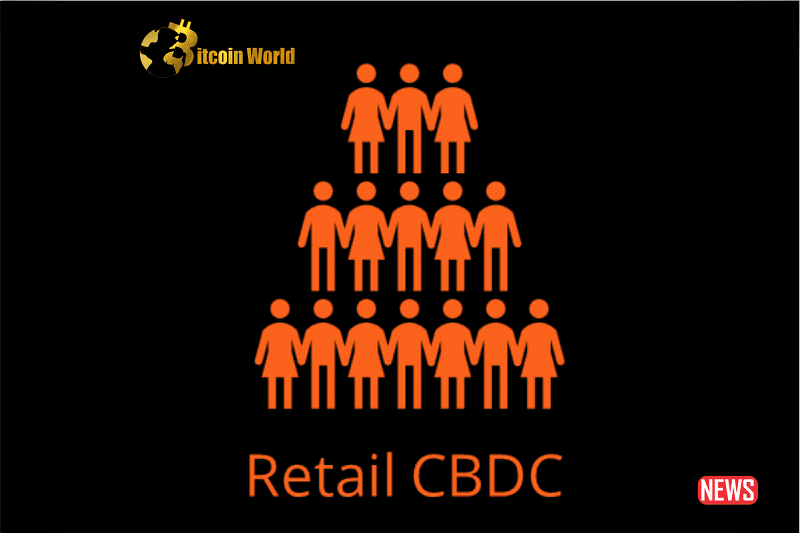The idea of a digital dollar, a central bank digital currency (CBDC) issued by the Federal Reserve, is gaining traction. But as the U.S. considers stepping into this new financial frontier, a crucial question takes center stage: can we create a digital dollar that respects our privacy? Recent statements from a top Treasury official suggest that this isn’t just an afterthought – it’s a core consideration.
Why Privacy Matters in the Digital Age
Imagine a world where every transaction you make is recorded and potentially accessible. While this might sound like a plot from a dystopian novel, it’s a legitimate concern with digital currencies. Graham Steele, the Assistant Secretary for Financial Institutions at the Treasury Department, recently highlighted this very challenge. Speaking at a payments conference in Texas, he underscored the delicate balance between curbing illegal activities and safeguarding individual privacy when designing a retail CBDC.
Think about it:
- Personal Freedom: The ability to conduct private transactions is often seen as a fundamental aspect of personal and economic freedom.
- Data Security: Centralized databases holding transaction information could become prime targets for cyberattacks.
- Potential for Surveillance: Without proper safeguards, a digital dollar could enable unprecedented levels of government surveillance over citizens’ financial lives.
Exploring Solutions: Privacy Enhancing Technologies
The good news is that the conversation is already shifting towards finding solutions. Steele specifically mentioned the exploration of “Privacy Enhancing Technologies” (PETs). What are these, exactly?
PETs are a range of technologies designed to minimize the amount of personal data required for transactions or to obscure the data itself. Examples might include:
- Zero-Knowledge Proofs: Allowing someone to prove they have sufficient funds without revealing the exact amount in their account.
- Homomorphic Encryption: Enabling computations on encrypted data, so transactions can be processed without decrypting sensitive information.
- Secure Multi-Party Computation: Distributing data across multiple parties so no single entity has access to the complete picture.
The Balancing Act: Benefits and Risks of a Digital Dollar
The discussion around a digital dollar isn’t just about privacy; it’s about weighing potential benefits against inherent risks. Steele touched upon this, referencing recent banking instability. Could a CBDC offer a safer haven during financial storms?
Potential Benefits:
- Financial Stability: A Fed-backed digital dollar could provide a safe alternative to commercial bank deposits, potentially mitigating the impact of bank runs.
- Improved Payment Systems: A CBDC could lead to faster, more efficient, and potentially cheaper payment systems.
- Financial Inclusion: It could provide access to digital payments for unbanked or underbanked populations.
- Global Financial Leadership: Adopting a digital dollar could help the U.S. maintain its position in the evolving global financial landscape.
Potential Risks:
- Privacy Concerns: As discussed, the risk of government surveillance and data breaches is a significant worry.
- Impact on the Banking System: A widely adopted CBDC could disrupt the traditional banking model.
- Cybersecurity Threats: The infrastructure supporting a digital dollar would need robust security measures to prevent attacks.
- Monetary Policy Implications: The introduction of a CBDC could have complex effects on monetary policy.
FedNow: A Stepping Stone or a Separate Path?
Steele also addressed the Federal Reserve’s FedNow instant payments system. He sees it as a positive development, fostering competition and innovation in the payments landscape. But is FedNow a precursor to a CBDC, as some fear?
Political figures like Robert F. Kennedy Jr. and Ron DeSantis have voiced concerns that FedNow could pave the way for a digital dollar and grant the government excessive control. However, officials like Federal Reserve Board governor Michelle Bowman have expressed skepticism about the need for a retail CBDC, suggesting its primary utility might be in interbank transactions.
Where Do We Go From Here?
The U.S. Treasury is currently leading an evaluation into the implications of a digital dollar, considering factors like national security, financial inclusion, and, importantly, privacy. While a decision hasn’t been made, the ongoing discussions signal a serious consideration of this transformative technology.
Key Takeaways:
- Privacy and anonymity are central to the design considerations of a potential U.S. digital dollar.
- Technologies like zero-knowledge proofs and homomorphic encryption are being explored to enhance privacy.
- A digital dollar offers potential benefits like financial stability and improved payment systems but also carries risks related to privacy and cybersecurity.
- The FedNow system is seen as a positive step for payment innovation, but its relationship to a potential CBDC remains a subject of debate.
The Future of Money: A Balancing Act
The journey towards a potential digital dollar is complex, filled with opportunities and challenges. The emphasis on privacy from the U.S. Treasury is a positive sign, suggesting a commitment to finding a balance between innovation and individual rights. As discussions continue, it’s crucial for policymakers, technologists, and the public to engage in thoughtful dialogue to shape a digital future that benefits everyone. The question isn’t just *if* we’ll have a digital dollar, but *what kind* of digital dollar it will be.
Disclaimer: The information provided is not trading advice, Bitcoinworld.co.in holds no liability for any investments made based on the information provided on this page. We strongly recommend independent research and/or consultation with a qualified professional before making any investment decisions.




